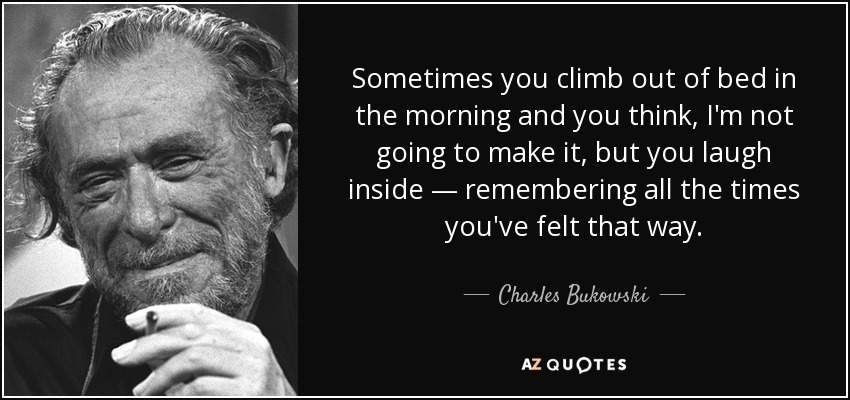Paul Whybrow
Full Member
There are a million writing advice sites online—actually, 436,000,000 if you search Google—everybody knows what you should be doing as a writer, (though, the easiest thing to do in the world is live someone else's life!).
Here are three things that I've learned, and which I frequently remind myself of:
1) Do It! Your story won't exist unless you write it.
Even if you don't feel in the mood for reeling off pages of creative writing, do something: jot down ideas, edit what you've already written, research facts, especially those you're sure are correct, and try looking at what you've penned from the point of view of another character—which may reveal something you've forgotten to mention.
Writing is always a long hard slog, but you'll feel better about yourself if you've typed only a few words. Mind you, thinking about writing also qualifies as writing!

2) Don't Beat Yourself Up! Everyone is a critic, including you, but be your own ally, rather than an enemy.
Writers can be self-defeating, not believing in themselves, which isn't the way to get anything done. Face it, from the very start, you've entered into a creative act that will spawn legions of the illiterate disinterested who don't care what you've done, as well as a long line of readers who like books, but not yours! From literary agents, to book publishers, editors, publicists, marketers, book reviewers, book shop owners, ebook websites, browsing readers and readers who actually pay for your title, your book will have nasty things said about it + courtesy of the internet, the insults may well be personal.
That's the battlefield: bring bandages, you're going to get hurt!
Why inflict pain on oneself, when so many others are ready to save us the trouble?
George W. Pacaud
Pain is inevitable, suffering is optional.
Haruki Murakami
3) Write Stuff Down! Sounds obvious, but, however you record ideas it stimulates more ideas, and there's evidence that the pen is mightier than the keyboard.
I can't imagine writing an entire novel by hand, but I do jot down ideas on pieces of card and leave them sticking out from beneath my laptop, which subtly stimulates my brain into working on the word, phrase or plot twist—more so, than if I'd simply typed it into a document on-screen.
If you don't write stuff down, there will come a time when your book is finished when you suddenly recall what you forgot to include, as the neglected detail flaps into sight like a vulture with greasy wings!
I've got dozens of folders containing notions, conversations and names for characters that may appear in future stories. It's a great way of saving time and making yourself feel good about yourself, when you rediscover a brainwave you had the year before.
Also, keep stuff! By that, I mean don't throw the baby out with the bathwater, when you're editing a manuscript. You may decide to dispense with a conversation between two characters, as being overly fussy for the thrust of your narrative, but it could be ideal for a future project.
Who's to say that great writers didn't almost ditch some of their most famous words?

What pearls of wisdom have you removed from the oyster bed of writing?
Here are three things that I've learned, and which I frequently remind myself of:
1) Do It! Your story won't exist unless you write it.
Even if you don't feel in the mood for reeling off pages of creative writing, do something: jot down ideas, edit what you've already written, research facts, especially those you're sure are correct, and try looking at what you've penned from the point of view of another character—which may reveal something you've forgotten to mention.
Writing is always a long hard slog, but you'll feel better about yourself if you've typed only a few words. Mind you, thinking about writing also qualifies as writing!

2) Don't Beat Yourself Up! Everyone is a critic, including you, but be your own ally, rather than an enemy.
Writers can be self-defeating, not believing in themselves, which isn't the way to get anything done. Face it, from the very start, you've entered into a creative act that will spawn legions of the illiterate disinterested who don't care what you've done, as well as a long line of readers who like books, but not yours! From literary agents, to book publishers, editors, publicists, marketers, book reviewers, book shop owners, ebook websites, browsing readers and readers who actually pay for your title, your book will have nasty things said about it + courtesy of the internet, the insults may well be personal.
That's the battlefield: bring bandages, you're going to get hurt!
Why inflict pain on oneself, when so many others are ready to save us the trouble?
George W. Pacaud
Pain is inevitable, suffering is optional.
Haruki Murakami
3) Write Stuff Down! Sounds obvious, but, however you record ideas it stimulates more ideas, and there's evidence that the pen is mightier than the keyboard.
I can't imagine writing an entire novel by hand, but I do jot down ideas on pieces of card and leave them sticking out from beneath my laptop, which subtly stimulates my brain into working on the word, phrase or plot twist—more so, than if I'd simply typed it into a document on-screen.
If you don't write stuff down, there will come a time when your book is finished when you suddenly recall what you forgot to include, as the neglected detail flaps into sight like a vulture with greasy wings!
I've got dozens of folders containing notions, conversations and names for characters that may appear in future stories. It's a great way of saving time and making yourself feel good about yourself, when you rediscover a brainwave you had the year before.
Also, keep stuff! By that, I mean don't throw the baby out with the bathwater, when you're editing a manuscript. You may decide to dispense with a conversation between two characters, as being overly fussy for the thrust of your narrative, but it could be ideal for a future project.
Who's to say that great writers didn't almost ditch some of their most famous words?

What pearls of wisdom have you removed from the oyster bed of writing?




